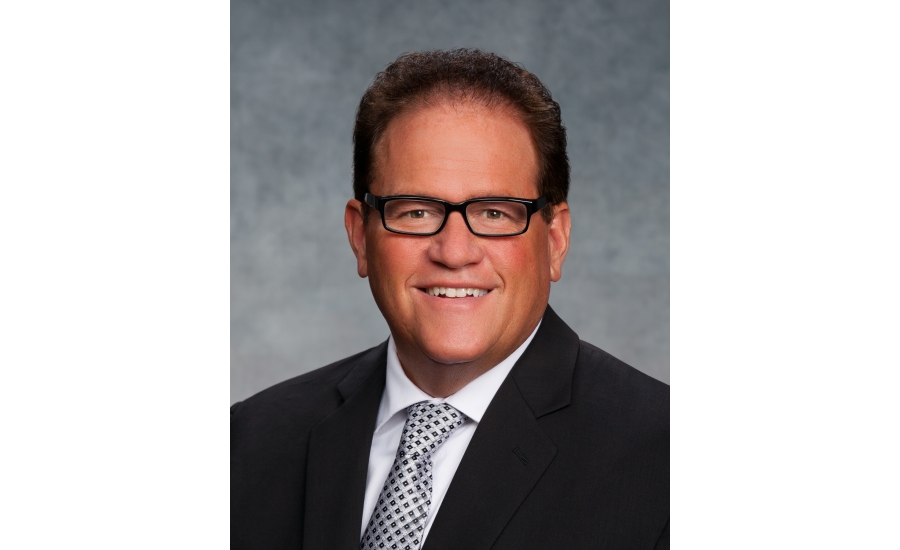Caught in the Middle: How the Repeal of Net Neutrality Could Affect the Security Industry

John Knox, president, Knox Integrated Systems, Knoxville, Tenn., believes the current state of FCC rules leaves security companies little to no recourse.
PHOTO COURTESY OF KNOX INTEGRATED SYSTEMS
In 2015 the FCC adopted Net Neutrality, which, in essence prohibited Internet service providers (ISPs) from speeding up, slowing down or blocking Internet content. These ISPs were required to treat all data on the Internet the same.
While there are multiple arguments for and against this government mandate, the FCC, by reclassifying broadband access as a telecommunications service in February 2015, ruled in favor of Net Neutrality and released specific rules of Net Neutrality in March 2015. The rule then took effect in June 2015.
In December 2017, the FCC voted to repeal the Net Neutrality rules.
So what does this mean for the security industry, which relies more and more on IP technology? SDM spoke with John Knox, president, Knox Integrated Systems, Knoxville, Tenn. Knox is a past president of the Electronic Security Association (ESA) and a current ESA Government Relations Committee member who has represented ESA in Washington about this issue.
SDM: What is the historical relationship with the security industry and Net Neutrality issues?
Knox: The alarm industry is really just caught up in the turmoil of the whole thing. [Net Neutrality] is mostly to protect the Internet structures from people coming in and outbidding someone to get better service. Where we come in is basically all of our communication protocol is now shifted over to IP and not telco lines. So we had carved out protection in the 1996 Telecommunications act that protected us from monopolies and several things like that.
So when you lose a technology and you say that the Internet is not going to fall under the FCC anymore, we really don’t have anyone to cry wolf to. Basically, they’re saying the Internet is not your phone lines anymore, it’s much more than that — which it is — but most all your phone lines are communicating over the Internet now. Even if you pay for conventional phone lines, somewhere between you and that person you’re calling, it’s traveling over voice over IP protocol. It was never even made to carry alarm signals; that’s why I say we’re getting caught up in the middle of technology in the battle over the Internet and who is going to regulate the Internet.
SDM: What effects could this repeal have on the security industry?
Knox: I always try to explain it in Washington when I go to represent ESA: we’re in the life safety business; we can’t afford a 90-something percent success rate when we’re used to 99.99. It actuates up to 12-13 days a year that you might not even have service. So, if you have a fire alarm in a nursing home or wherever — even our customers in residential homes deserve better odds than that. It’s just proven unreliable for what we’re doing.
The biggest way it affects ESA and our members is it eliminates the protection we had under the 1996 Telecommunications Act, because you move the Internet away from that and out of the FCC.
SDM: Who is pushing for the repeal of Net Neutrality?
Knox: The Charters, Comcasts and AT&T’s of the world do not want to be regulated, and they’ve been regulated for most of their existence. Their claim is the Internet was never intended to be regulated because it’s the Internet — it’s not a phone company or a communications company, when in fact it is for us; it is our primary means of communication.
SDM: What do you mean when you say we’re “getting caught up in the middle of this”?
Knox: When I say we’re getting caught up with everything, we’re getting caught up with the Netflix and those types of services: people streaming music and movies — entertainment. That’s the biggest number of people affected by the Internet and priority access, and who is going to let who have more bandwidth and all that.
It is communication to us, but the phone companies want to call it something else. They want to call it “Internet” and not phone calls or communications systems. And as FCC has allowed them to eliminate dial tones throughout the United States, we’ve argued that point that you should never let a technology be dissolved when the technology that you are putting in its place is less reliable.
And that’s exactly what they’re doing.
SDM: What response does the FCC give to your concerns?
Knox: They’re saying we could go to the Federal Trade Commission [with a dispute], but we’ve never been able to do that. They haven’t set up a way to do that, but that’s the mindset of the Republican Party: Let the Trade Commission regulate it — it’s not a communications thing anymore.
It will be dealt with; they’re going back and forth now. I met with Marsha Blackburn in Nashville, the chair of the communications committee, and while we agree with most things, we don’t agree in this particular issue. Her reply is that once we tear it down, we’re going to start building it back, and we’ll get you protection in there. But I don’t really believe that.
She took so much money from the telecoms. The week I was there meeting with her and working on ESX, someone had hung billboards talking about the hundreds of thousands of dollars of campaign contributions she has taken from AT&T.
My own congressman when I talk to him, he doesn’t understand anything having to do with communications. They think that everything is going wireless — and all this is being told to them by AT&T and Comcast and Charter — they have lobbyists up there every day. But it’s not a wireless world; it never will be a wireless world. Even cellphones conversations — I’m talking on a cellphone right now, but it’s going through a wired switch, and the towers are all wired through fiber and various means, but the way they see it is it goes out of one cellphone and goes to another cellphone.
I try to explain to them some of the problems in voice over IP and how it condenses and reduces packets and then sends it back, that data gets lost, and that’s why alarm signals are distorted. I’ve got a graph that they can kind of see the distortion, and that’s about the only thing I got them to understand is looking at a picture.
It’s just very difficult to explain technical stuff to Congress because they’re not technical people, and then on the other side you’ve got the telecoms up there with millions of dollars that they’re not only donating in the campaign, they’re also putting feet on the ground in these guys’ offices telling different stories.
SDM: So what can those in the security industry do?
Knox: Security dealers and integrators have to pay close attention to how their signals are being sent to the central stations. You can pay for priority top lines and routing where you’re not supposed to go over voice over IP, but I doubt that happens 100 percent of the time because you don’t really ever know. But they should definitely be looking into the best possible routing that they can get for their signals to be transmitted to the central station.
Other than that, they should stay involved in their chapters. What we’re really hoping is that a Telecommunications Act rewrite is going to come up. They’ve been talking about doing it, and we thought it might get done sooner, but with all the Obamacare being pushed back — and that battle took up so much of last year — is it even going to get done this year — I don’t know, but our plan is to get our language put back into the Telecommunications Act rewrite to give us protection from monopolies because [big telecom companies] are in our business. I don’t mind that they are in our industry, but I want a level playing field for everyone. As things are now, they can sit there and throttle our lines, and by the time we go through the federal Trade Commission or the FCC — or whoever it is — we might be out of business.
I filed a complaint with FCC in September of last year, and I still haven’t gotten a response.
I don’t think there’s much else we can do other than try to get our language put in a rewrite of the Telecommunications Act. At that point we’re going to need a grassroots effort like we did in ’95 and ’96, when many people went to Washington.
It’s not something that’s going to happen without us going to Washington and doing a lot of lobbying and explaining. That’s where the member companies come in. even just writing a letter to their Congressman or something like that is effective.
Being closely involved in this issue for some time now, Knox emphasized that these opinions are his, and he is not speaking here on behalf of ESA.
Looking for a reprint of this article?
From high-res PDFs to custom plaques, order your copy today!






